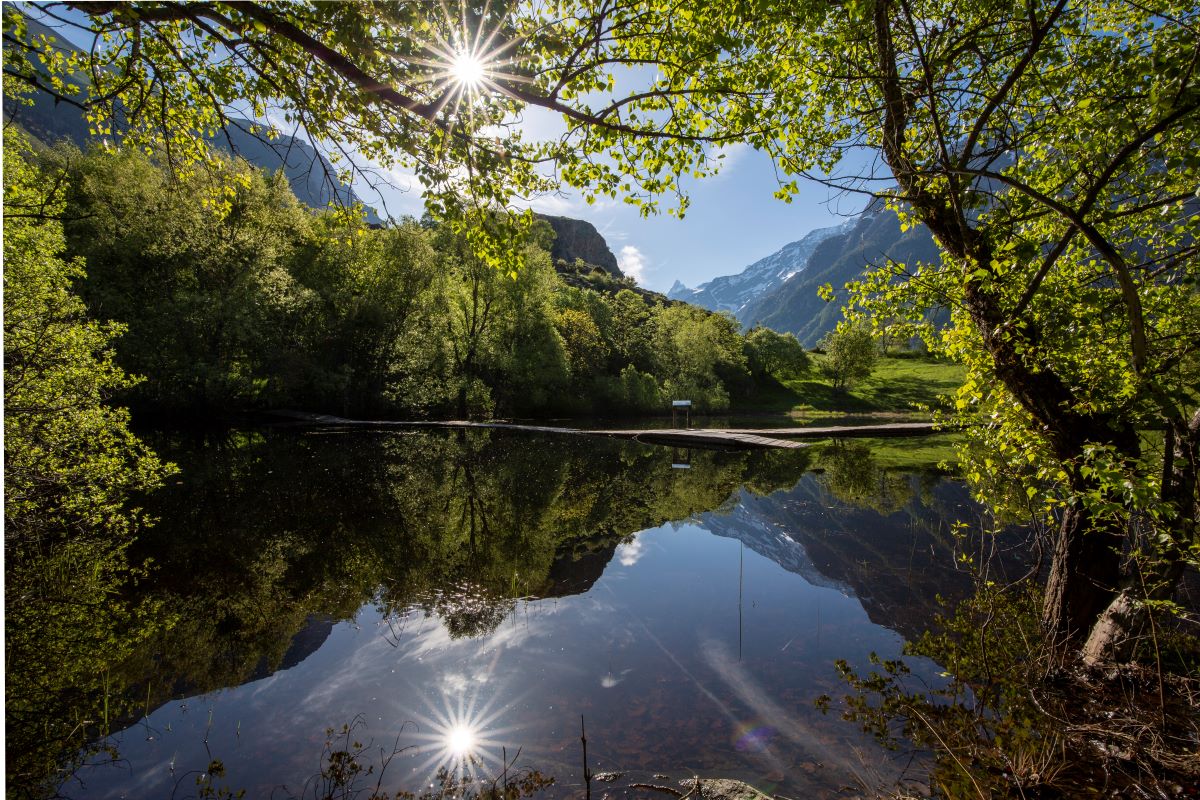
Lovitel lake and the Clots refuge
"On a hard Autumn day, I hike towards Lovitel lake. The rain accompanies me. The small lake nestling in the curves of the lower mountain shelf seems to be sleeping. It is calm, magnificent and full of promise: in the summer months, you can see the Purple Loosestrife flowering here, you can hear the Common Midwife Toad "singing", you can see the Meije looming in the distance... Without a doubt : I have to come back !"
S. Durix, Park Ranger in Oisans
Description
From Aymes car park, continue along the track that changes little by little in to a footpath. A lovely crossing, elevated occasionally, on the shale slopes overhanging Chambon lake enabling you to easily reach Lovitel lake via a gentle hill. On the ledge, there is a 1st trail discovery signpost turn either left (faster) or right towards the lake (discovery trail) to reach Clots hamlet. The refuge that you will find here provides an agreeable place for a rest to regain your strength. before descending using the same itinerary.
- Departure : Mizoën
- Towns crossed : Mizoën
5 points of interest
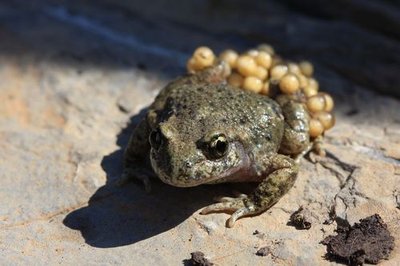
Alyte accoucheur - Marc Corail - PNE  Fauna
FaunaCommon Midwife Toad
In Spring, a short note emitted at regular intervals resonates around the lake. It is the mating season for this small terrestrial grey toad, mottled with black and brown; it is the male toad’s song to attract the females. A peculiarity of this anuran is that the male uses his back legs to surround the string of ova laid by the female to fertilize them with a jet of semen mixed with urine. In this way he watches over the eggs for several weeks. When they are on the point of hatching, he goes to the water and frees the young frogspawn.
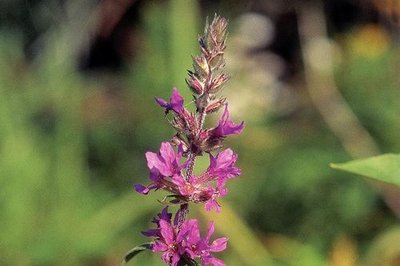
Salicaire - PNE  Flora
FloraPurple Loosestrife
During the whole summer, the Purple Loosestrife, with its beautiful purple spikes, sprinkles the small Lovitel lake with colour. Considered to be a weed to be destroyed, it does however hold a position among the most useful plants (plants with medicinal properties). Its astringent properties, among others, deem it to be a good remedy against colic in infants when teething. In the kitchen, its young shoots and the flesh of its stalks used to be consumed as a vegetable. The leaves could also be infused like tea.
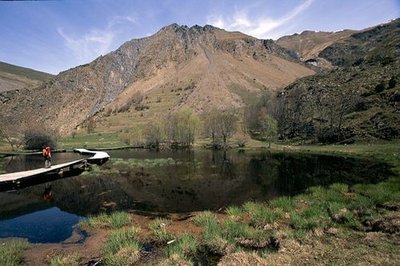
Le sentier de découverte des Clots, Mizoën - Cyril Coursier - PNE  Lake
LakeLovitel Lake
In addition to being one of the rare wetlands at altitude on the highest part of the Romanche, Lovitel Lake unusually partially dries out during the summer and turns in to a marsh. In this way it becomes ideal for the development of amphibians who benefit from the absence of fish, their predators. Furthermore, the ecological quality of the environment is remarkable... Several species of great natural value are present at this site, notably the Adder’s Tongue Fern and the Small Meadow Rue, both protected regionally.
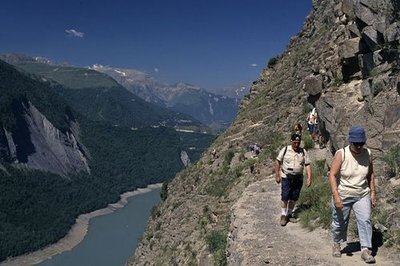
Sur le sentier du refuge des Clots surplombant le lac Chambon - Daniel Roche - PNE  Lake
LakeChambon Lake
Chambon Lake is, like the one at Serre-Ponçon, an artificial lake created by the establishment of the dam. In April 1935, after six years of work, the site was first launched, progressively swallowing up the ancient villages of Chambon, Dauphin and Parizet. It was at this time the highest dam in Europe. A chapel was built near the dam in memory of the thirty workmen who lost their lives during its construction.
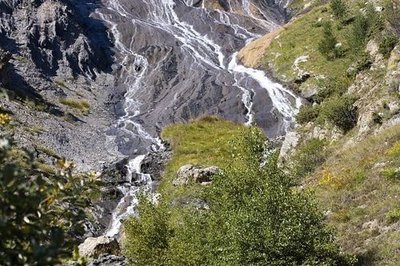
Les Clots, la fontaine pétrifiante - Gérald Lucas  Geology and geography
Geology and geographyPetrifying Fountain
The water that crosses the Emparis plateau which is composed of permeable sedimentary rock, fills up with Calcium bicarbonate. When, lower down, it comes in to contact with the impermeable crystalline rock layer of the Hercynien granitic base, the water follows a fault plane established between two layers and finishes in an aerial waterfall. The dissolved carbonates are transformed into a soft rock called Tuff by their contact with the air which has accumulated there for millennium. This resurgence, or petrifying fountain, is one of the most beautiful in France.
Forecast
Altimetric profile
Sensitive areas
Short-toed snake eagle
- Impacted practices:
- Aerial,
- Sensitivity periods:
- MarAprMayJunJulAugSep
- Contact:
- Parc National des Écrins
Julien Charron
julien.charron@ecrins-parcnational.fr
Recommandations
Elevated footpath, sometimes very high up, keep a close eye on children. Footpath totally inadvisable in the winter !
Information desks
Oisans Park house
45 avenue de la République, 38520 Le Bourg d'Oisans
Video presentation of the natural resources of the Oisans mountain and its crafts. Information, documentation about the Park, projections, reading space for children. Accessible to people with reduced mobility. Free admission. All animations of the Park are free unless otherwise stated.
Access and parking
From Bourg-d’Oisans, take the N91 towards Lautaret mountain pass. After the Chambon dam, turn left towards Mizoën, then right towards Singuigneret. After the tunnels, turn right until Aymes hamlet.
Source

Report a problem or an error
If you have found an error on this page or if you have noticed any problems during your hike, please report them to us here:

